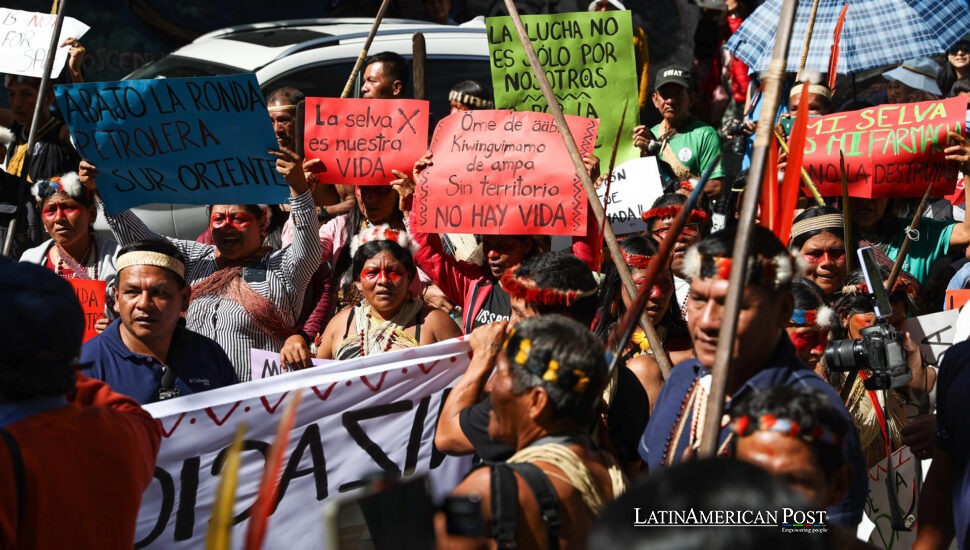Ecuador Confronts Crime, Debt, And Jobs As Noboa Seeks Stability

President Daniel Noboa begins a full term facing three problems that keep most Ecuadorians up at night: violent gangs, strained public finances, and scarce jobs. His success or failure will shape daily life in a nation already weary of broken promises.
Crime and a Fractured Congress
When Daniel Noboa walks into the National Assembly to take the oath of office, voters will listen for a plan that goes beyond slogans. They have reason to worry. After briefly falling in 2024, Ecuador’s homicide rate again leads Latin America, averaging one killing every hour so far this year. The president calls it a “war,” but beating well-armed gangs takes more than tough talk—it also takes laws, and there Noboa’s footing is shaky.
His party, Acción Democrática Nacional, holds only a slim plurality and must bargain daily with the Indigenous-led Pachakutik bloc and the conservative Social Christian Party. “That coalition could unravel at any moment,” political scientist Santiago Basabe warned in an interview with EFE. The president has already tested the alliance by proposing blanket pardons for soldiers and police officers who face human-rights probes, arguing that rank-and-file security forces need protection while confronting cartel firepower. Critics counter that such immunity invites abuse. The bill inches forward, but each committee vote is a nail-biter.
Public patience is thin in Guayaquil, a port city scarred by extortion and contract killings; neighborhood shopkeepers now lower steel shutters before dusk. Taxi drivers travel in informal convoys to reduce hijack risks. Many residents applauded Noboa’s 2024 decree labeling the gangs “terrorist organizations,” which allowed joint military-police patrols. They also noticed that murder tallies spiked again in early 2025. “We see soldiers on corners, but the gunmen keep coming,” fish-seller Lucía Morales said as she packed up her stall at noon—an early closing hour she adopted after two colleagues were robbed at gunpoint.
Noboa’s security advisers tout new intelligence units and port-scanner upgrades funded through emergency bonds. But every reform needs votes, and even allies grumble about the Palace’s fast-tracked bills. “He’s governing in campaign mode,” one Social Christian legislator muttered in a hallway, declining to give a name but adding, “Parliament is not a rubber stamp.” For now, the president cannot afford to lose them; neither can the country if shootings continue to climb.
The Tightrope of Dollars and Debt
Violence is the headline, yet the ledger sheets may prove just as explosive. Noboa inherited a budget hole of nearly 5 percent of GDP in 2023 and trimmed it to about 3 percent last year—progress, but not enough to calm bond traders eyeing the $2.6 billion payment due in 2026. The International Monetary Fund has offered a $4 billion support package; disbursements hinge on stricter taxes and slower spending.
Fuel subsidies sit first on the chopping block. They cost the treasury more than schools and hospitals combined, economists say, but also keep groceries affordable for millions. Whenever past presidents threatened cuts, downtown Quito filled with Indigenous marchers blocking highways and banging pots. Noboa insists he can phase out the subsidies in steps, pairing each hike with targeted aid for rural families, but no timetable has reached Congress. “The administration leans heavily on private-sector growth yet presents no fiscal map,” Basabe told EFE.
The growth story itself looks fragile. After a 2 percent contraction in 2024, the Central Bank predicts a 2.8 percent rebound this year, mainly driven by copper and gold projects in the Andean highlands. Environmental activists and local communities have already filed lawsuits alleging hasty permits. Foreign investors want clarity on tax breaks; villagers wish to clean rivers and jobs that last longer than a construction phase. Either group can stall a mine with protests.
Meanwhile, the national debt clock ticks. Finance Minister Gabriela Tea has floated a “blue bond” tied to marine conservation goals in the Galápagos—an innovative but small change next to the looming 2026 wall. Bankers ask whether Quito will again raid Central Bank reserves; public-sector unions vow strikes if wage freezes widen. It’s a delicate balance in a place where dollarization prevents the government from printing money but does not prevent bread prices from rising.
Jobs on Hold, Patience Wearing Thin
In 2023’s snap election, Noboa—a 36-year-old banana heir with a Stanford degree—won over young voters by promising “first jobs” within months. Halfway through his abbreviated starter term, youth unemployment still hovers near 19 percent. Last year, he tried to legalize hourly labor contracts via referendum, arguing that rigid laws deter hiring. The measure failed, sunk by union ads that warned of “American-style precarious work.”
With a full four years ahead, the president is rebooting the plan. His labor minister now talks about a tiered system combining traditional contracts with flexible options for tech and tourism start-ups. Details remain hazy. “Since he’s already been in office, Ecuadorians expect results yesterday,” Basabe noted to EFE. Small-business owner Carolina Jarrín voices similar impatience. “We need to hire two staffers for our bakery, but severance rules scare us,” she said while kneading dough in Cuenca’s historic district. “Give me clear laws; I’ll create jobs tomorrow.”
Healthcare and schools add to the to-do list. In Esmeraldas Province, parents still buy basic medicines out of pocket because clinics ran out after December. Teachers in Chimborazo count 45 students in a classroom. Noboa has promised new hospital wings and digital tablets, yet the 2025 budget earmarks less for social programs than for security. “Guns before gauze,” a nurse’s union banner read at a recent rally outside the Health Ministry.
Rafael Correa, the ex-president living in Belgium after a graft conviction he dismisses as political, is hovering over all of this. His Citizen Revolution movement placed second in the last legislative race and now scans Noboa’s every misstep. Should subsidy cuts trigger riots or murder rates refuse to budge, Correa’s allies will pounce with no-confidence motions. The patchwork coalition behind Noboa could fray quickly under that strain.
Also Read: Argentina’s New Political Shake-Up: Milei’s Rise Tests Macri’s Legacy
Yet inside Carondelet Palace, aides project optimism. They cite early wins: a slight uptick in customs revenue after anti-smuggling raids, the arrest of two cartel financiers, and a signed memorandum with a Korean firm to build solar farms. “Governance is a marathon,” one adviser said, glancing at the president’s running shoes beside his desk. The image feels apt. For Ecuador’s 18 million citizens, the course ahead is uphill, paved with both potholes and possibilities. Whether Noboa crosses the finish line with the country in better shape will depend on how deftly he juggles bullets, budgets, and jobs in the tense months ahead.





